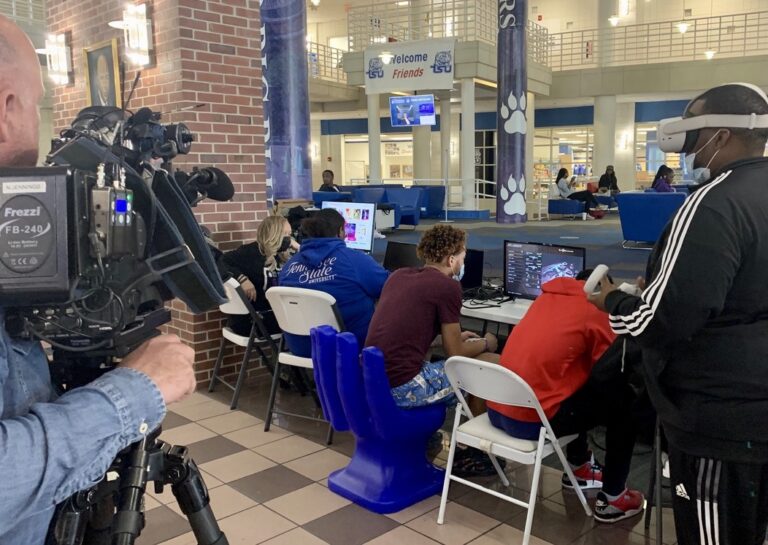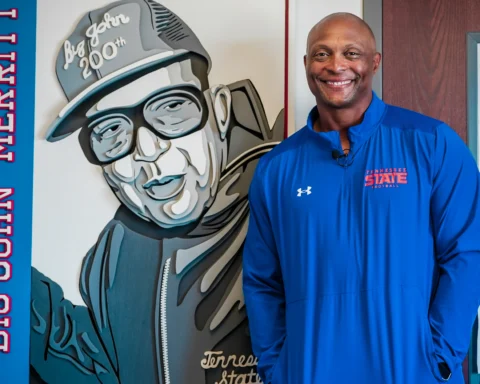By Emmanuel Freeman
The multibillion-dollar industry of video gaming, or eSports, is thought to be a hobby primarily enjoyed by males worldwide. Tennessee State University aims to change that perception.
The university recently hosted a special eSports gaming competition for female gamers. Recent statistics show that only 22 percent of women participate in eSports. The goal of the competition was to use video gaming as a pathway to recruit minorities, particularly Africa American females into STEAM Academic programs.
Tiara Radcliff, a senior psychology major, whose team won the gaming competition, is thankful for the opportunity. She has been playing since she was 6, but never competitively.
“It was my first-time winning in a tournament. I enjoyed it,” said Radcliff, of Indianapolis. “Some girls don’t play because they think it is for guys. I am glad TSU is doing this. It will open up more girls to the game.”
Kiara Davis, Radcliff’s teammate in the competition, is also thankful that TSU is “opening doors for girls.” She has also been playing from a very young age but was always afraid to join a team.
“As a young kid, I watched my father and my younger brother play. I was very timid to join the eSports team. So, I didn’t join,” said Davis, a freshman business administration major from Memphis, Tennessee. “When I came to TSU, I decided to give it a go, and I am glad I did. What TSU is doing will get more women involved and they will see that they can actually play.”
Currently, TSU has six teams, including male and females, and the university is offering classes in eSports this fall though a new Academic eSports Center.
Robbie Melton, TSU’s vice president of the Global Smart Technology Innovation Center, said the university wants to push students to look at eSports as more than just a game.
“We want to look at the academics of game design, of coding, of entrepreneurship, of the psychology and the management,” said Melton. “It’s a whole gamut of career opportunities that we want to prepare them for looking at what they’re passionate about the interest of eSports.”
Dr. Effua Ampadu-Moss, director of TSU’s eSports program, will teach a graduate course in the program, called “Special Topics: The Rise of eSports in Higher Education Administration.”
“Gaming has always been a male sport, and that’s the stigma we are trying to break by letting them know that girls can get in the game as well,” Ampadu-Moss said. “So, with the competition, we wanted to encourage our female eSports student-athletes to come out and play to help encourage other girls on campus to come out and play as well.”
Executive Director Deborah Chisom, who oversees eSports and Open Education Resources, added that eSports helps students build character, leadership skills, as well as teaches them to be strategic.
“eSports is where the young people are going today,” said Dr. Chisom. “So, in order for us to be a part of it, we needed to start an eSports at TSU, not only for young men, but for our young girls as well. I think it is very important because it allows them some skills and helps them to be engaged. I like to see them collaborate; I like to see them plan.”





